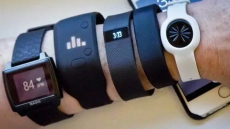A recent study claims that a roller coaster ride is a fail-safe way to shift kidney stones; however, it may require a few tries.
According to a team at Michigan State University College of Osteopathic Medicine roller coaster rides nay prove very helpful to patients bearing a stone in kidney.
Lead author David Wartinger, after years of hearing about this method of passing stones, decided to put it to the test, reports Daily Mail.
Eventually, he along with his team developed a model kidney from 3D-printed silicone filled with urine and three kidney stones of differing sizes.
They then hopped on Walt Disney World’s Big Thunder Mountain Railroad ride 20 times, holding the model where it would be on a person.
Then they rode Space Mountain 20 times and the railway ride 20 times, sitting at different points of the ride each go.
By the end they concluded that roller coasters do indeed stimulate kidney stones to pass and the best bet is sitting at the back.
Though doctors have their own theories, with most advising patients to do physical exercise, there was no clear data to support it until now.
It is the first study to scientifically test home methods of passing kidney stones.
Wartinger said, “Preliminary study findings support the anecdotal evidence that a ride on a moderate-intensity roller coaster could benefit some patients with small kidney stones. Passing a kidney stone before it reaches an obstructive size can prevent surgeries and emergency room visits.”
Roller-Coaster1
Roller coaster riding after treatments like lithotripsy and before planned pregnancies may prevent stone enlargement and the complications of urethral obstruction.
Around three in 20 men and up to two in 20 women develop the condition at some stage of their lives, mainly when between the ages of 30 and 60.
It is also very common in pregnant women.
The model of experiment held three actual kidney stones of various sizes positioned in the upper, middle or lower passageways of the kidney.
Researchers analyzed those 60 ride outcomes to determine how the variables of kidney stone volume, location in the kidney and model position in the front versus rear of the roller coaster impacted kidney stone passage.
Independent of kidney stone volume and location, findings showed sitting in the back of the roller coaster resulted in a passage rate of 63.89 percent.
Front seat rides resulted in a passage rate of 16.67 percent.
The study was published in The Journal of the American Osteopathic Association





